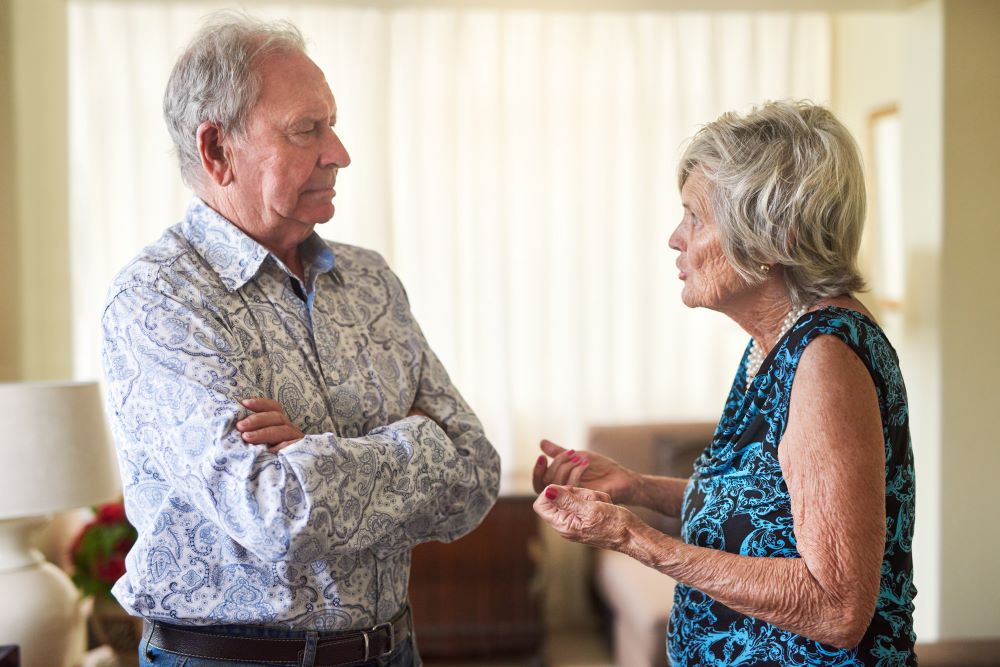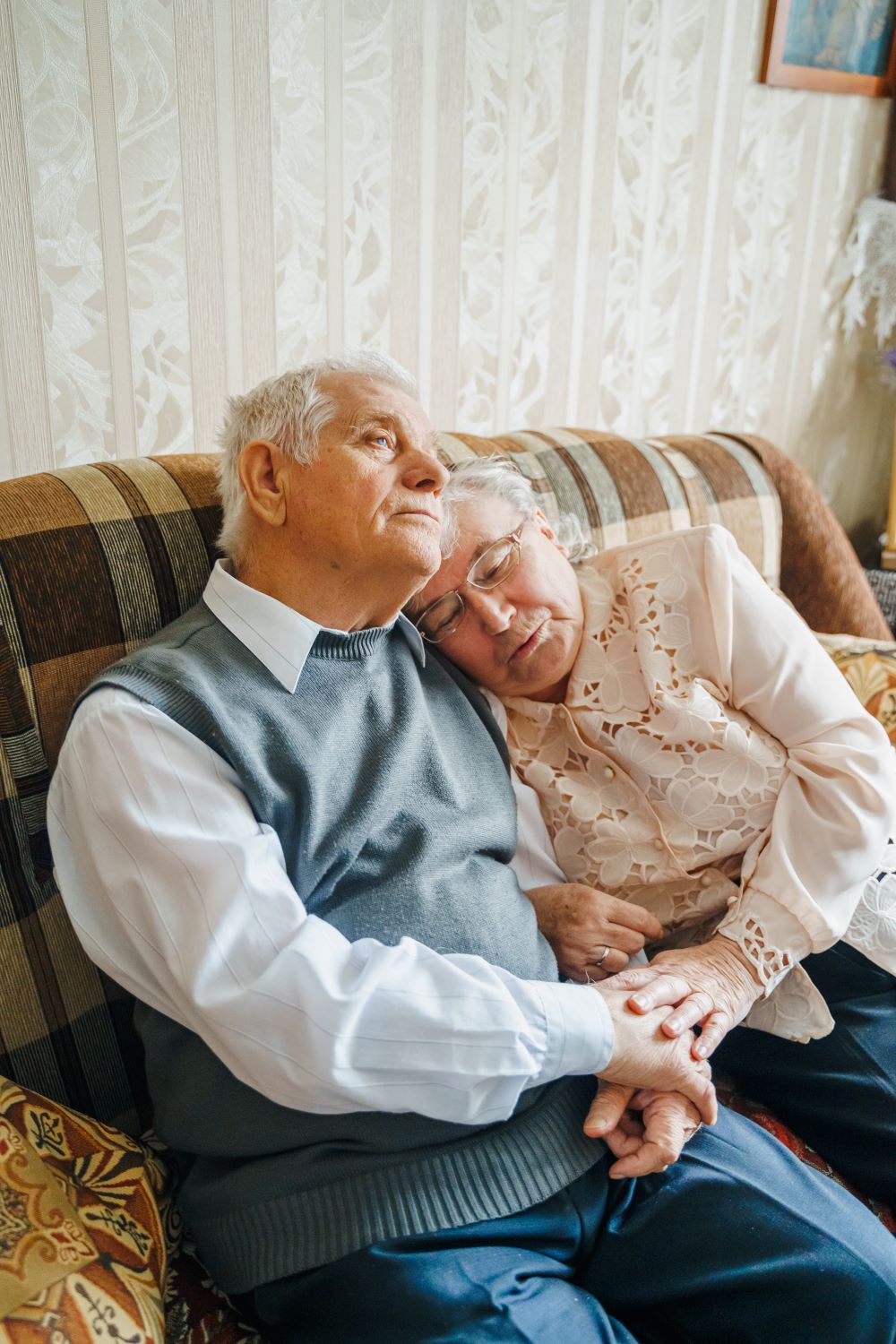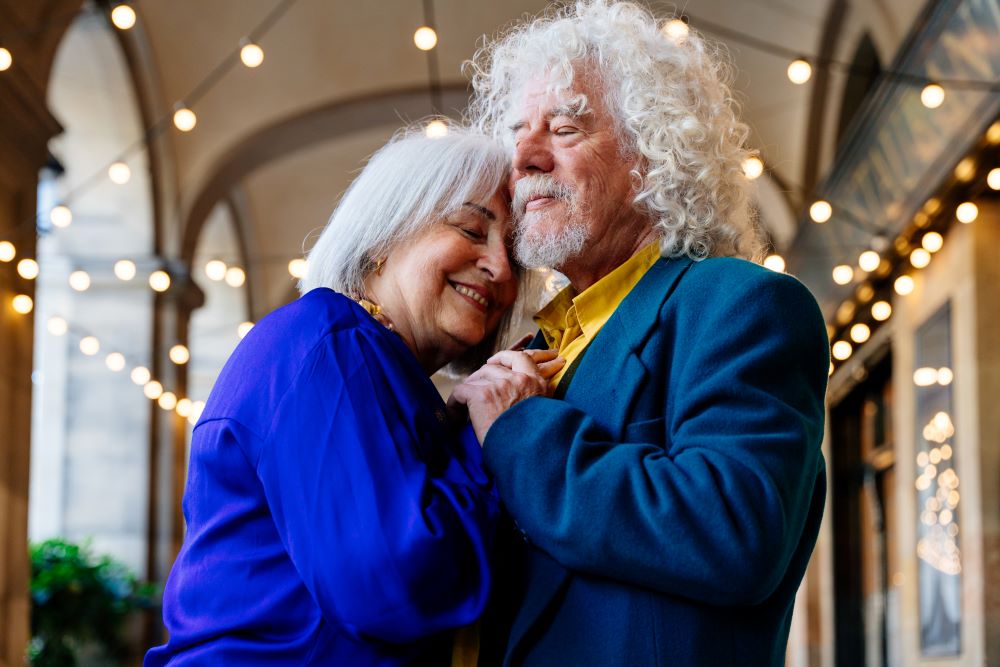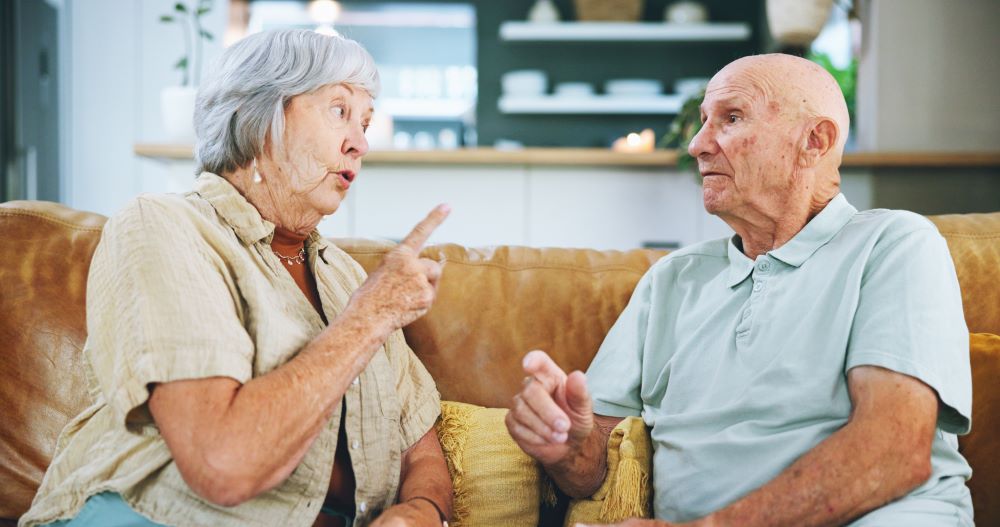Finding Peace Before It’s Too Late
Caregiving for a loved one with dementia is a journey filled with both beautiful and challenging moments. For many dementia caregivers, unresolved feelings or old hurts can rise to the surface, creating tension and even anger. When a person with dementia can’t remember or respond to these feelings, it can be deeply frustrating. But as hard as it may be, learning to let go of the past and focus on creating peaceful memories can lead to a more meaningful experience for both you and your loved one—because the time you have together is precious and unpredictable.
This story highlights a caregiver who struggled with anger toward her husband due to unresolved issues from their past. She bravely chose to change her approach, ultimately creating happier visits and finding peace. Through her journey, we offer guidance for other dementia caregivers facing similar challenges.

A Caregiver’s Journey: Healing from the Past While Facing Dementia
When Gary was first diagnosed with dementia, his wife, Linda, was determined to care for him at home. They had been married for over 45 years, but their relationship had its share of struggles. One of the most painful chapters in their marriage was an affair Gary had over 40 years ago. Though they had stayed together, Linda had never fully healed from the betrayal, and the hurt lingered in her heart.
As Gary’s dementia progressed, his memory began to fragment, and he became increasingly confused about the past and present. One day, during a moment of confusion, Gary mentioned the name of the woman he had an affair with all those years ago. For Linda, it felt like a fresh wound had been opened.
“Why would he talk about her?” Linda thought angrily. “Does he still care about her after all this time? Am I not enough?” Her mind raced with questions, and the pain of the past rushed to the surface.

Struggling with Anger and Resentment
At first, Linda couldn’t help but respond with frustration and anger. She would snap at Gary, accusing him of still thinking about the other woman. She would ask him why he betrayed her, hoping for answers he couldn’t give. But Gary, lost in his confusion, couldn’t even understand why Linda was upset. His replies only made things worse, fueling her belief that he was intentionally trying to hurt her.
In truth, Gary’s mind was no longer tethered to reality. The name he mentioned wasn’t about love or longing—it was simply a fragment of a distant memory that resurfaced in his confusion. But Linda, still carrying the weight of her unresolved pain, struggled to see this at the time.
Over months, the tension between them grew. Linda began to dread her caregiving duties, feeling as though her sacrifices weren’t appreciated. She found herself resentful, thinking, Why should I take care of someone who hurt me so deeply?

A Sudden Turning Point
Gary’s health began to decline, and he experienced several falls that led to hospital visits. When his condition worsened, Linda could no longer physically care for him at home, and he was moved to a nursing home. Linda’s visits to Gary were strained. She couldn’t seem to let go of her anger and would often bring up the past, even though Gary could no longer understand what she was saying.
One day, after another tense visit, Linda confided in a close friend from her support group. Through tears, she admitted, “I don’t know why I’m so angry. I know he’s sick, but I can’t stop thinking about what he did to me. And now, every time he talks about her, it’s like it’s happening all over again.”
Her friend gently reminded her that Gary’s dementia was progressing and that his confusion about the past wasn’t intentional. “He’s not trying to hurt you, Linda,” her friend said. “Dementia has taken away his ability to explain or even understand what he’s saying. But you still have the power to decide how you spend these moments with him. Don’t let anger steal the time you have left.”

Choosing Compassion Over Conflict
Linda left the conversation with a lot to think about. She realized she had been holding on to the pain of the past instead of focusing on the present. Slowly, she began to change her approach. She stopped questioning Gary about the affair or reacting when he mentioned the other woman. Instead, she redirected the conversation to happier topics, sharing stories about their life or talking about simple things like the weather or the meals she’d cooked that week.
At first, it wasn’t easy. The memories of the betrayal still stung, but Linda reminded herself that Gary wasn’t the same person who had hurt her decades ago. His mind had been changed by dementia, and he needed her compassion more than ever.
To her surprise, as she let go of the past, her visits with Gary became more peaceful. He seemed calmer when she spoke kindly to him, and Linda found herself smiling more. She realized that by choosing love and forgiveness, she was not only helping Gary but also freeing herself from the weight of her anger.

The Final Days
A few months later, Gary’s condition took a sudden turn for the worse. He fell into a semi-conscious state, unable to respond to Linda or anyone else. Sitting by his bedside, Linda held his hand and reflected on their life together. Tears streamed down her face as she whispered, “I’m sorry for being so angry, Gary. I hope you know I love you.”
Though Gary didn’t respond, Linda felt a sense of peace. She knew she had done her best to make their final months together as loving as possible. She realized how precious their time had been and was grateful she had chosen to focus on love rather than resentment.
A Lesson for Other Caregivers
Linda’s story is a powerful reminder for other dementia caregivers. Unresolved hurts from the past can cloud your ability to provide care with compassion. It’s natural to feel anger, resentment, or sadness, but holding on to those feelings can rob you of the precious moments you still have with your loved one.
Dementia changes everything, and the person you once knew may no longer exist in the same way. But by choosing forgiveness and focusing on creating moments of peace, you can find healing—for yourself and your loved one.
Time is fleeting, especially in dementia care. The person you love may decline quickly and unexpectedly, leaving you wishing for one more chance to hold their hand or hear their voice. Make the most of today. Choose love, kindness, and forgiveness. These moments will become the memories that comfort you when they are gone.

Understanding Dementia and Emotional Triggers in Caregiving
Dementia affects a person’s memory, their personality, and their way of understanding and responding to the world. Dementia caregiving is often complex because a person with dementia may not remember events that are crystal clear to their family members. This can make it hard for caregivers to accept, especially when unresolved issues continue to surface. Learn more about understanding dementia HERE.
For some caregivers, old wounds and resentment can affect how they interact with their loved one with dementia. The caregiver in this story found herself reliving past resentment, expressing it through anger and frustration. But dementia is an unpredictable journey; changes can happen suddenly, leaving caregivers with only a few days, hours, or even moments left with their loved one. This reality makes it even more important to focus on peace, compassion, and creating memories today.

Signs It’s Time to Let Go of Past Hurts in Dementia Caregiving
Caregivers may not realize when past feelings start affecting the care they provide. Here are some common signs that past wounds are influencing your dementia caregiving approach:
- Frequently bringing up old issues that your loved one can no longer remember or answer.
- Feeling frustrated or resentful and possibly becoming easily irritated during care.
- Reliving past conversations or arguments that ultimately lead to painful interactions.
In dementia care, every moment counts, and while some individuals may live with dementia for many years, they can also decline rapidly. Any visit could be the last meaningful one you share, so focusing on creating moments of connection and love is essential.

Moving from Conflict to Compassion in Dementia Caregiving
Dementia is much more than memory loss. As the disease progresses, it changes the way a person with dementia understands and responds to the world. This means that questioning or confronting them about things from the past is not only unproductive but can lead to regret. The person with dementia genuinely cannot remember or comprehend the depth of these issues.
Here are some ways to create more positive interactions in dementia care:
- Keep conversations light and pleasant by discussing simple topics like the weather, family members, or easy-to-recall memories.
- Avoid questions about the past and instead share joyful stories or offer a calm presence.
- Practice mindfulness. When past hurts surface, try taking a deep breath and reminding yourself of your loved one’s limitations.
This caregiver’s story shows that letting go of painful questions can transform your time together, creating space for compassion and joy. Choose to create meaningful memories today rather than regretful ones tomorrow.

Creating Positive Memories in Dementia Care
One of the most difficult parts of dementia caregiving is accepting the inevitability of loss. The person you knew may change over time, and that’s incredibly painful. However, by focusing on creating good memories and moments of connection, you can take comfort in the future, knowing that you made every effort to bring love and laughter into their life.
Here are some tips for finding peace and creating positive memories:
- Accept the changes dementia brings. It’s natural to feel loss and sadness, but accepting the disease’s limitations will help you create more positive interactions.
2. Choose kindness over confrontation to make the most of each visit. Every conversation, every shared moment is a chance to build a memory you can cherish.

Forgiving Yourself as a Caregiver
It’s natural to feel guilt over things said or done in stressful moments. Caregiving for a loved one with dementia is a deeply emotional role, and it’s essential to be kind to yourself along the way. Healing and forgiveness are part of the journey. Remember that every caregiver struggles; no one is perfect.
Here’s how to begin forgiving yourself:
- Acknowledge your feelings with compassion. It’s okay to feel frustrated, angry, or even regretful. These are normal emotions in dementia care.
- Reach out for support to friends, family, or a support group.
- Practice self-kindness. Remind yourself that dementia caregiving is incredibly challenging, and you’re doing your best.
The caregiver in this story eventually realized her anger stemmed from her own unresolved feelings. With time, she forgave herself, creating a space for healing and peace.

Cherishing Every Moment: Dementia Care is About Today
The time we have with loved ones with dementia is finite, and dementia care is unpredictable. Though some people with dementia may live for years, others experience a sudden change and a rapid decline. Every moment you have together is precious, and it’s worth focusing on creating good memories rather than holding onto past hurts. You may never know which conversation, shared smile, or loving embrace will be your last.
For caregivers, this article is a gentle reminder: choose today to create memories you’ll cherish forever. Let go of the past, embrace compassion, and focus on making each visit filled with love and laughter. Your choice to let go can change everything—for you and your loved one, leaving you with memories that comfort you in the years to come.









0 Comments